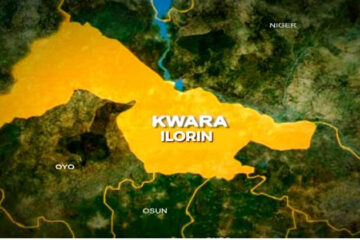IPOB agitation, terrorism require kinetic, non-kinetic approaches – Shettima

Shettima
The Vice President, Senator Kashim Shettima on Saturday said both kinetic and non-kinetic approaches must be explored in tackling the various security challenges across the country.
He stated this at the graduation ceremony of the National Institute for Security Studies’ Executive Intelligence Management Course 16 which was held in Abuja.
The agitation by the Indigenous People of Biafra (IPOB) in the South-East, the banditry in the North-Central, and terrorism in the North-East and North-West need to be tackled using not just a kinetic approach but also non-kinetic means, Shettima noted.
Attributing the current insecurity in parts of the country to poverty and unemployment, the Vice President harped on the need to improve governance in the country.
“For every Asokoro, there is a Karu. For every Maitama, there is a Dutse Alhaji. We need to create jobs. We need to improve governance in the country,” Shettima said.
Calling for the unity of the country, Shettima assured that the administration of President Bola Tinubu is determined to bring development to the country, canvassing for support from Nigerians.
Also speaking at the event is the Director General of the Department of State Services (DSS), who hinted that the agency will soon unveil weapons produced by its personnel.
According to him, the DSS will soon begin to “produce what it eats, and eat what it produces.”
Among the weapons the Secret Service will soon unveil are Unmanned Aeriel Vehicles (UAVs), he stated.
Bichi also assured that the agency will continue to support the National Institute for Security Studies to succeed in its quest to impart knowledge that will enhance security in the country.
He charged the participants to utilise the skills they have acquired to develop the country, urging Nigerians to remain patriotic and shun those whom he described as warmongers who want to set the country on fire.
The Executive Intelligence Management Course (EIMC) 16 commenced in February 2023 with 89 participants drawn from 35 agencies across Nigeria and four other African countries, namely, Niger, The Gambia, Rwanda and Chad.











